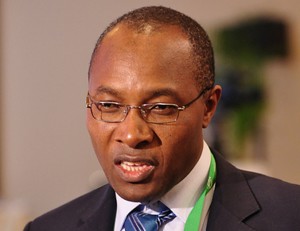Value of AfCFTA would rise to $200b by 2045 if African countries streamline land policies – Karingi

If the African Continental Free Trade Agreement (AfCFTA) is fully implemented, the value in trade on the continent could go up to $200 billion by 2045. The value would be driven by manufacturing of goods in the agro-processing sector, Dr Stephen Karingi, the Director of Regional Integration and Trade at the Economic Commission for Africa (ECA), has said at a panel discussion at the ongoing Fifth Conference on Land Policy in Africa, Wednesday November 22, 2023.
He indicated that the AfCFTA takes Africa into agriculture trade, particularly manufacturing in agro-food, which will require raw materials produced from land.
There would be investments in factories and production plants and these investors would require land, he said.
“There would be $200 billion more in terms of intra-African trade if you fully implement the AfCFTA. We have computed the figures and looked at how many kilometres of roads, railway lines, expansion of port capacity, and storage facilities, and improvement in air transport to move agricultural products. For the AfCFTA to be fully implemented, you need these facilities which would require land,” he said.
Adding that if you want to have transboundary economic zones, to take advantage of intra-African trade, you need land. “All these relate to land, and unless you rationalize all the laws on land, you won’t be able to implement the AfCFTA,” he said.
Mr Tsotetsi Makong, Head of Capacity Building and Technical Assistance, AfCFTA Secretariat, in his contribution said land tenure security is important in attracting investments and noted that it would be difficult for investors to bring their money into Africa if they do not have land security tenure.
He also added that most of investments have always been in the extractive industries.
“We must foster intra-African investments. We should have regulatory frameworks to ensure that investors do not destroy the environment, and we must enforce the laws to ensure that while investors do not destroy the environment, we must also ensure that their rights are protected,” he said.
He noted that the issues of land are within the remit of domestic regulations, and pointed out that because traditional authorities also control land, it is often difficult to regulate land issues.
“We must provide security of tenure to attract investments not only from outside, but also from Africa, and we must look at our domestic laws and protect investors,” he added.
Eileen Wakesho, a land and natural resource justice expert raised questions about equal rights to land. “Women and men have differentiated rights to land,” she said, adding that about 7.3 million hectares of land was acquired for development purposes in Africa and asked that the implications of that on the people should be looked at.
“Corporations sign agreements to purchase land and build industries, but would that benefit the people? If land is acquired who is to be compensated?” She asked.
“We have cases where land is acquired and people are not compensated, because they do not have the right to land,” she said.
Dr Karingi further said there are linkages between the SDGs and the AfCFTA in terms of the rights of women and so on.
He noted that the full implementation of the AfCFTA would lead to industrialization and that would increase carbon emissions, however, if countries pursue climate change adaptation and mitigation, they would actually reduce carbon emission.
“It’s possible to implement both the AfCFTA and the National Determined Contributions,” he said.
In his closing remarks, Mr Makong emphasized the need for policy coherence in Africa.
“If we do not have policy coherence in our countries now, how can we have policy coherence in Africa?” He asked.
Ms Eileen called for transparency in largescale land transactions. And asked: “Do we look at free prior consent? Do we look at how the land agreements affect the people? We must not only focus on speed in implementing the AfCFTA, we must also look at quality and how that affects the people,” she said.
The theme for the fifth edition of the bi-annual Conference on Land Policy in Africa is ‘Promoting sustainable land governance in Africa for accelerated implementation of the African Continental Free Trade Area (AfCFTA)’.
It is being attended by more than 930 delegates both in-person and virtually.
The oragnisers are the African Union Commission, the Economic Commission for Africa and the African Development Bank.
By Emmanuel K Dogbevi, in Addis Ababa, Ethiopia
Copyright ©2023 by NewsBridge Africa
All rights reserved. This article or any portion thereof may not be reproduced or used in any manner whatsoever without the express written permission of the publisher except for the use of brief quotations in reviews.
